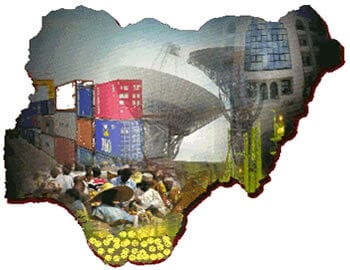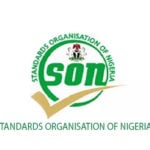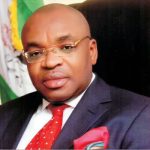Lamenting the state of his ministry when he took over, the minister said it was appalling that in the 2015 budget, only N19billion was earmarked for road construction out of N9billion released. “When you put that into perspective that when I was leaving as the Lagos State governor in May 2015, a total of N74 billion was earmarked for road construction and somebody was seated somewhere and happy that N19billion was all that was earmarked for all roads in Nigeria.” On power, the minister said though the major stakes in the sector had been privatised, the current administration had raised power generation from 4000 megawatts met on assumption office in 2015 to the current 7000 megawatts. He added that power stations including the ones at Azura, Kaduna and Afam were ready to function and provide additional 1000 megawatts.
Speaking on the second Nigeria bridge, Fashola said everything is now in place to fully construct the bridge as needed funds are now available. The initial delay according to him was due to the inability of the former administration to design the roads leading to the bridge. He also said the rehabilitation of several bridges across the country is ongoing. Among several efforts by the administration to put the economy back on solid footing. Consequently, it would be foolhardy to talk about the economic performance of the Buhari administration without first taking into cognisance, the doleful state of the economy when this administration took over in 2015.
As a major plank of the administration, the Buhari administration must be commended for the way it has managed the economy in the last three and a half years. Irrespective of the fact that the expected 4 per cent projected growth rate has not been achieved, it stand to reason that we would have been worse off if the administration has not taken the drastic steps it took to stop the economic haemorrhaging the economy plunged into in 2015 which evidently is not the fault of the administration but the consequence of several years of mismanagement by successive administrations which climax within the last three years of the Jonathan administration. The worst can be said to be over: the economy is now on the path of growth after the recession of 2016-17.
It is on record that the Buhari administration’s priority sectors of agriculture and solid minerals maintained consistent growth even throughout the recession. The phenomenal growth in the agricultural sector is as a result of deliberate policies, for which the Buhari administration must be commended. For instance the race revolution has taken roots, a significant quantity of the rice consumed in the country today is from local production. From the rice fields in Abakiliki, South South Nigeria to extensive rice fields of Kebbi state north eastern Nigeria, the agricultural revolution of the Buhari administration has taken root. Today Nigeria have more millionaire farmers than any other time in our national history. This is a clear indication that agriculture is the new crude oil and with the incentives the government has put on grounds more people are already going into farming not on sustenance level but as a business.
Still on the economic front, it should also be recalled that the naira was on a free fall, at the inception of the administration. The exchange rate between the naira and the dollar at one point crossed over 500 naira to one dollar. A situation that created panic and dampened investors’ confidence. Foreign inflows dried up as a result of the unstable exchange rate while many medium and small scale enterprise were grasping for breath. Added to the woes for the new administration was that global oil prices, a major source of foreign inflow into the country dried up, as oil prices fell from a record high of $145 to a low of $32. The situation was so bad that the country’s foreign reserve could barely sustain a month of import. We had barely $25 billion in our external reserves!
For a country that easily forgets it helps to be reminded this frightening situation which signalled a total economic collapse is the reason the Central Bank of Nigeria was compelled to ban 41 items from the foreign exchange window. This move which came under a lot of criticism when it was first announce has been applauded in recent times as responsible for the initial successes that pushed up the value of the naira against the dollar and stabilised that exchange rate.
Currently the new FX Window introduced by the CBN in April 2017 now sees an average of $1 billion in weekly turnover, and has attracted about 45 billion dollars in inflows in its first year, signalling rising investor confidence in the Nigeria economy.
Also the Nigeria Stock Market after initial hiccups is on the rebound. The exchange ended 2017 as one of the best-performing in the world, with returns of about 40 percent. Irrespective of the challenges it continue to experience, the investing public are upbeat that the exchange would eventually come around.
As the Buhari administration continue to expand its revenue base, it must also be commended for adding over five million new taxpayers to the nation’s tax net. This feat is remarkable and shows the Buhari’s government commitment towards diversify government revenue, rather than relying on oil earnings.
The nation’s, tax revenue is estimated to have increased to N1.17 trillion in the first quarter of 2018, a 51 per cent increase over the first quarter 2017. This is commendable. A situation that is bound to consistently improve as government put in more effective measures to bring more Nigerians into its tax net.
In terms of the economy, the achievements of the Buhari government may not be apparent, but if truth must be said, the government should be rated against the background of what it inherited from the last administration.
That the economy has been steered out of recession and now on the path of growth is a major achievement of the Buhari administration which should not be swept under the carpet in the name of scoring cheap political point.






